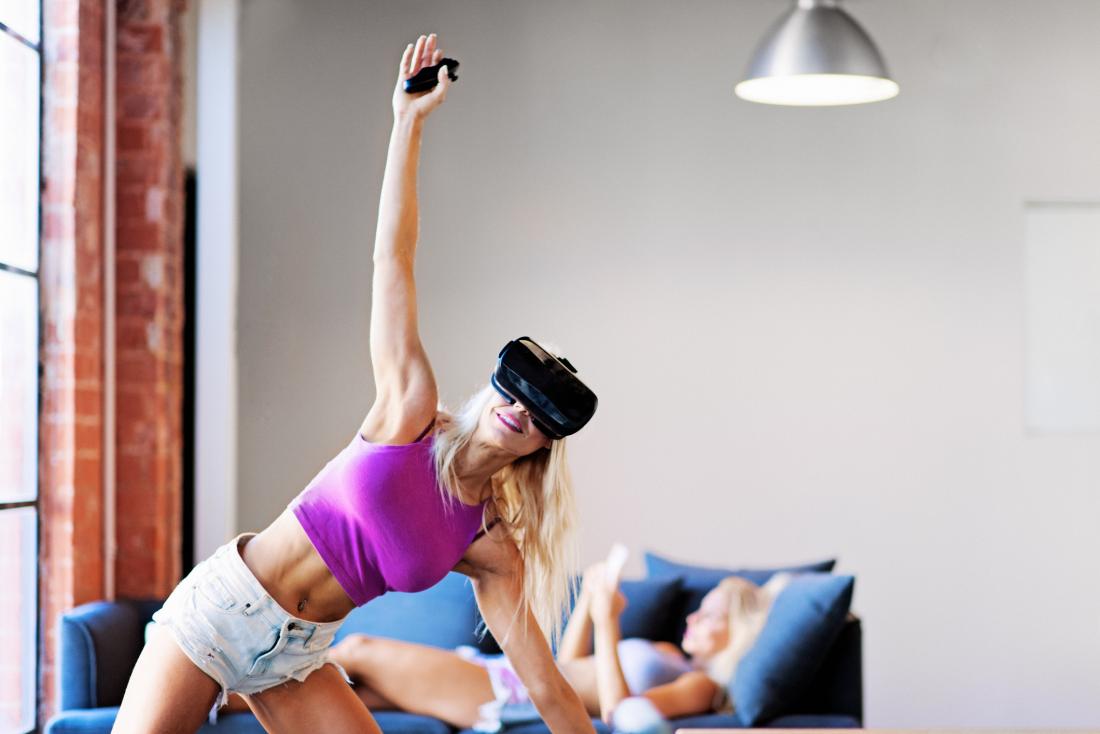How virtual reality can boost your workout

Research shows that immersing oneself in a virtual environment during a workout helps boost performance and endurance, as well as reduce the levels of perceived pain and effort.
Researchers have been looking more and more into the potential therapeutic applications of virtual reality (VR).
Cognitive behavioral therapy, for instance, when administered with the use of VR technology, is shown to reduce paranoia and anxiety.
Scientists have also used VR exposure therapy to reduce post-traumatic stress disorder in soldiers.
Some experimental studies have even used VR headsets to reduce the pain of minor surgical procedures for adults, as well as the pain of shots for children.
New research further examines the relationship between VR and the experience of pain, but in the context of physical exercise.
Scientists who were led by Maria Matsangidou, a doctoral researcher in the School of Engineering and Digital Arts at the University of Kent in the United Kingdom, set out to examine the effects of VR on performance and the perception of pain during a workout.
The findings were published in the journal Psychology Sports and Exercise.
Studying the effects of VR on exercise
Matsangidou and colleagues asked 80 participants to perform an isometric bicep curl at 20 percent of their maximum strength and to hold the weight for as long as possible. Of these participants, 40 wore a VR headset and 40 controls were asked to do the same lift but without the headset.
Those who wore the VR headset saw a virtual recreation of the same environment that the control group was in — that is, the same room, decorated in the same way — but they were also able to see a visual representation of their arm holding the weight.
The researchers measured the study participants' heart rates, time to exhaustion, and private body consciousness — that is, a person's awareness of their own bodily sensations.
Previous studies have shown that people with a high private body consciousness tend to perceive more pain during exercise, so the researchers wanted to see whether this psychological factor would have any bearing on VR's effects on exercise.
In this study, the participants were also asked to report their rating of pain intensity and perceived effort.
